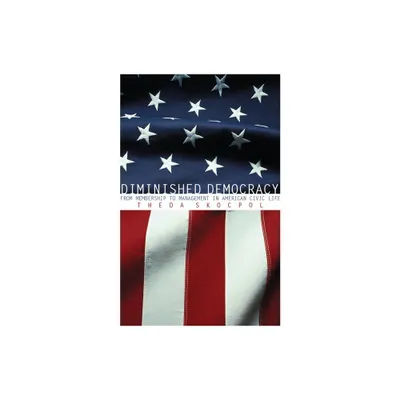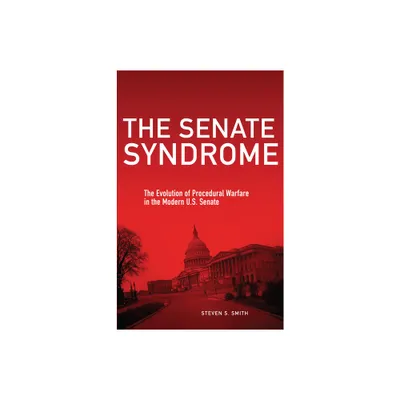Home
The Democratic Century (Julian J. Rothbaum Distinguished Lecture Series) / Edition 1
Loading Inventory...
Barnes and Noble
The Democratic Century (Julian J. Rothbaum Distinguished Lecture Series) / Edition 1
Current price: $34.95


Barnes and Noble
The Democratic Century (Julian J. Rothbaum Distinguished Lecture Series) / Edition 1
Current price: $34.95
Loading Inventory...
Size: OS
*Product Information may vary - to confirm product availability, pricing, and additional information please contact Barnes and Noble
Where and why was democracy successful in the twentieth century? In
The Democratic Century
, Seymour Martin Lipset and Jason Lakin combine social, cultural, economic, and institutional analyses to explain why democracy has succeeded in some countries and failed in others.
Defining democracy as a political system in which all adults may vote in contested elections to choose their representatives, Lipset and Lakin argue that the mainstays of a successful system are institutions that encourage the diffusion of power—such as competitive parties, an independent civil society, and federalist arrangements. But central to their argument is the notion that culture, at least as much as any other variable, is responsible for the establishment of democracy.
The authors’ concept of culture is not static, however. They argue that, because cultures interact with social, economic, and political variables, they can change and become compatible with democracy. Consequently, Lipset and Lakin hope for a democratic twenty-first century.
revisits theories from Lipset’s earlier works, including the classics
Agrarian Socialism
and
Political Man
. But the authors do more than update Lipset’s work; they offer an expansive view of democratic systems and of the vast body of relevant literature.
The Democratic Century
, Seymour Martin Lipset and Jason Lakin combine social, cultural, economic, and institutional analyses to explain why democracy has succeeded in some countries and failed in others.
Defining democracy as a political system in which all adults may vote in contested elections to choose their representatives, Lipset and Lakin argue that the mainstays of a successful system are institutions that encourage the diffusion of power—such as competitive parties, an independent civil society, and federalist arrangements. But central to their argument is the notion that culture, at least as much as any other variable, is responsible for the establishment of democracy.
The authors’ concept of culture is not static, however. They argue that, because cultures interact with social, economic, and political variables, they can change and become compatible with democracy. Consequently, Lipset and Lakin hope for a democratic twenty-first century.
revisits theories from Lipset’s earlier works, including the classics
Agrarian Socialism
and
Political Man
. But the authors do more than update Lipset’s work; they offer an expansive view of democratic systems and of the vast body of relevant literature.













